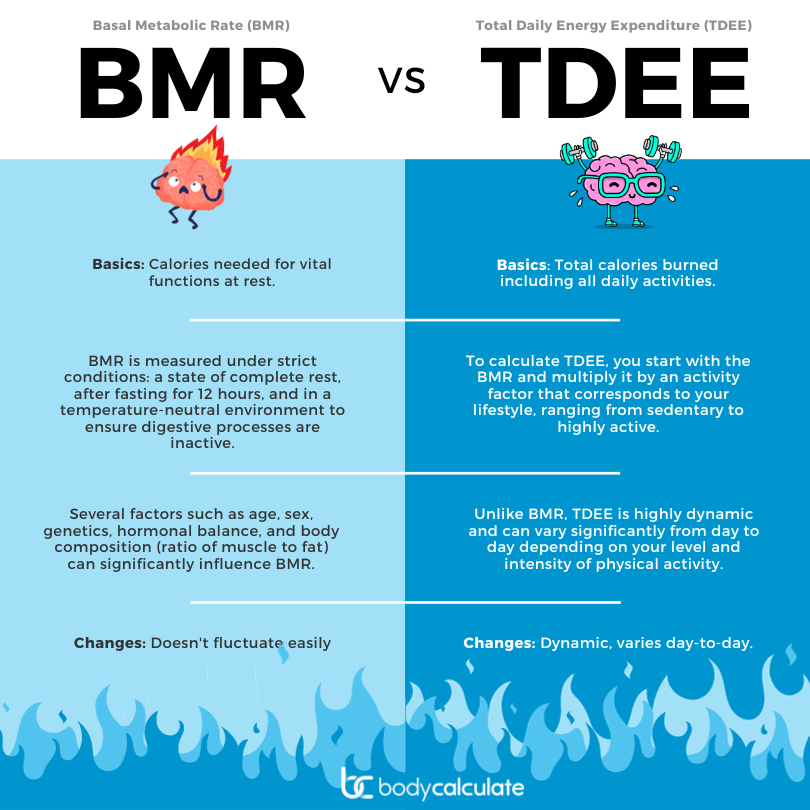Both BMR and TDEE provide insights into the calories your body requires but they have distinct roles. Let’s break down each term:
BMR
- BMR is an is an acronym of Basal Metabolic Rate.
- BMR represents the number of calories your body needs to maintain essential functions when at complete rest.
- ONLY Energy at Complete Rest.
VS
TDEE
- TDEE is an acronym of Total Daily Energy Expenditure.
- TDEE estimates the total amount of calories burned daily when combining BMR and all other physical activities, tasks, and additional physiological processes.
- ALL Energy used including BMR, TEF (Thermic Effect of Food) AND PA (Physical Activity).
What does basal, metabolic, and rate in BMR mean?
What does Basal mean?
“Basal” means fundamental or basic. Basal in BMR refers to the base level of energy required without any extra activities.
What does Metabolic mean?
“Metabolic” refers to the processes related to metabolism within living organisms. Metabolism covers all the biochemical reactions that occur within cells to maintain life. There are two main reactions: anabolic and catabolic reactions.
“Metabolic” can be thought of as the processes by which living cells produce and use energy and also build and break down complex molecules.
What does Rate mean?
“Rate” refers to the amount of energy expended (while the body is at rest) per unit of time (for example, calories burned per day).
What does total daily energy expenditure in TDEE mean?
- Total: Refers to the overall number of calories.
- Daily: Indicates that the measurement is based on a 24-hour period.
- Energy: Refers to calories or kilo joules, which are units of energy the body uses.
- Expenditure: Means the number of calories the body uses or “burns” throughout the day
To Find your daily calorie needs:
- First determine your BMR.
- Then find your Physical Activity Level (PAL) multiplier (here).
- Now multiply your BMR by your PAL multiplier (from step 2).
- Figure out how much you eat in calories for the day, this is to estimate the energy expenditure required to process food called Thermic effect of food (TEF). If the exact value is unknown, TEF is typically estimated to be 10% of your Basal Metabolic Rate (BMR).
- Finally add TEF to the answer from step 3.
TDEE = BMR x PAL + TEF

